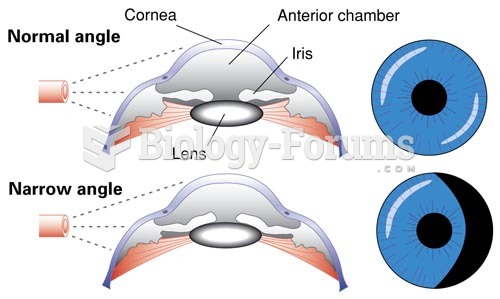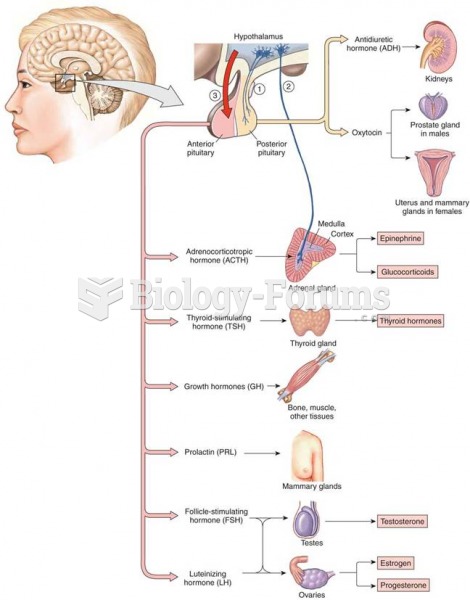Answer to Question 1
Correct Answer: 2
Rationale 1: The client might have trouble getting pregnant because of damage to the anterior pituitary.
Rationale 2: The anterior pituitary contains FSH and LH, which promote the development of immature ovarian follicles. This maturation process is necessary for ovulation.
Rationale 3: The anterior pituitary does not secrete gonadotropin-releasing hormone (GnHR).
Rationale 4: The posterior pituitary does not contain the hormones needed for conception.
Global Rationale: The client might have trouble getting pregnant because of damage to the anterior pituitary. The anterior pituitary contains FSH and LH, which promote the development of immature ovarian follicles. This maturation process is necessary for ovulation. GnHR is secreted by the hypothalamus. The posterior pituitary does not contain the hormones needed for conception.
Answer to Question 2
Correct Answer: 2
Rationale 1: Uterine contractions do not cause menstruation.
Rationale 2: Menstruation begins when high progesterone and estrogen levels in the final third of the uterine cycle provide negative feedback to shut off GnHR, LH, and FSH. This causes estrogen and progesterone levels to drop sharply, which causes the endometrium to be shed.
Rationale 3: A normal menstrual cycle can vary from 22 to 35 days and still be considered normal.
Rationale 4: Menstruation does not occur with ovulation.
Global Rationale: Menstruation begins when high progesterone and estrogen levels in the final third of the uterine cycle provide negative feedback to shut off GnHR, LH, and FSH. This causes estrogen and progesterone levels to drop sharply, which causes the endometrium to be shed. Uterine contractions do not cause menstruation. A normal menstrual cycle can vary from 22 to 35 days and still be considered normal. Menstruation does not occur with ovulation.







